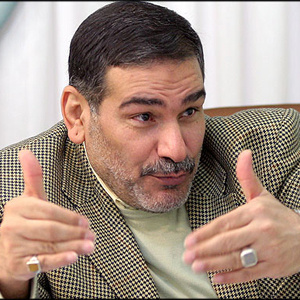No More Resolutions against Iran

IRD: Tehran says the declaration is a ‘diplomatic initiative’. If so, why didn’t it embrace a similar plan –the nuclear swap plan discussed in Vienna- earlier, in 2009? Why did we allow Turkey and Brazil to engage in the nuclear negotiations?
AS: Because it’s diplomacy! It’s all about advancing, retreating, and showing flexibility. The Islamic Republic stands firm on its principles, but at the level of tactics it practices maneuverability. Uranium enrichment and use of peaceful nuclear technology is our inalienable right. That, we will never abandon. But how we exercise our rights is negotiable.
IRD: A number of observers believe that the Tehran Declaration is another Iranian game and Tehran will never give in to the actual demands for nuclear fuel exchange. How serious is Iran in complying with the declaration?
AS: Well, Iran was under no pressure from Turkey or Brazil to issue the Tehran Declaration and send the IAEA a notification letter. Iran set up the initiative. If there is any problem, it is with West—which never predicted Iran’s move—so it looks at the agreement as a delaying tactic.
IRD: Can Tehran’s initiative forestall the issuance of another UN Security Council resolution against Iran?
AS: I have no concrete answer to that as long as the game continues. All we have to do now is to focus on the Tehran Declaration and not let minor concerns derail the nuclear negotiating process. As I’ve said, our flexibility foils the efforts for the issuance of another UN Security Council.
IRD: Could negotiations with Washington possibly affect Iran-IAEA talks, and ratification of the Tehran Declaration?
AS: It would be wrong to tie Iran-U.S. relations to the nuclear issue. At least at this point. On the nuclear program, our strategy should be trust building while reserving the right to full-control over the nuclear process, not just the enrichment.
IRD: How about U.S. efforts to forge a global consensus against our nuclear program? Are they effective?
AS: In opposition to President Obama’s announced policies, Washington is pushing for a resolution. But what are they going to do after a hypothetical approval of the resolution? Of course some U.S. diplomacy decision-makers advocate release of a new resolution against Iran, but Obama knows this contradicts his strategy.
IRD: Do you mean that Obama is acting against his own Iran strategy? AS: There is a trap that I’m not sure Obama is willing to get caught in. But all the insistence on passing another resolution and preparing the draft for it has dual usage: as a lever, it serves the U.S.-led psychological warfare to press Iran to take further conciliatory steps, while it could also be a backup plan for when Washington’s pressures to convince Iran to heed its demands fail. Any effort by Iran to forestall, delay, or attenuate a UN Security Council resolution will be the right move at the moment.

